The content of the article
According to statistics, every fifth child grit his teeth during sleep. Despite this prevalence, this process is not normal. In medical language, the creaking of teeth is called “Burxism.” It may indicate pathological processes occurring in the child’s body. In addition, Burxism has very unpleasant consequences. Why does this pathology arise and how to fight it?
Causes
Doctors of various specialties conducted research in order to understand the etiology of Burxism. However, they did not manage to come to a common opinion. It is impossible to say exactly why some children grit their teeth at night, while others do not. Nevertheless, it was found out that there are a number of diseases, pathological processes and conditions of the body, which most often lead to Burxism. The main ones are the following:
- Teething. Children under 7 years old may suffer from Burxism due to the fact that they are teething. At the same time, gums are itching, and the only way to scratch them in a dream is to move the jaw and rub the teeth. This reason is not a pathology, but before going to bed it is necessary to give the child preparations that reduce itching.
- Nightmares. It is believed that gnashing of teeth is a phenomenon similar to a conversation during sleep or sleepwalking. This explains why it does not occur at all, and only during sleep, but it is difficult to prove this theory.
- Changes in the dental apparatus. Dentists believe that burxism occurs due to abnormal development of the upper or lower jaw, as well as changes in the temporomandibular apparatus.
- Stress. The child perceives the world not as adults. For him, stress can be any situation, even one that would not cause any reaction in an adult. In the daytime, the child restrains his emotions, and at night they come out, manifested by gnashing of teeth.
- Worm infestation. This is another untested theory. It is believed that the child gnashing his teeth at night if he has pinworms in his body.This can be explained by the fact that these parasites are more active at night, they cause itching in the anus, making it difficult to sleep, the child is nervous and begins to grit his teeth in his sleep.
- Adenoids. So called an increase in nasopharyngeal tonsil. When it grows, it is difficult for air to pass through the nasopharynx, it becomes difficult for the child to breathe through the nose, and it breathes through the mouth. The mouth is not intended for prolonged breathing, because the mucous membrane dries out, and the child begins to grit his teeth. Almost all children with adenoids have burxism.
- Heredity. It is difficult to explain this reason. It is proved that the likelihood of burxism in children whose parents once gritted their teeth is higher than in children whose parents did not suffer from this pathology.
- Weaning. For a child, this process is a real stress. That is why at night the sucking reflex is activated in him, but instead of sucking the baby begins to grit his teeth. In this case, Burxism will pass when the child gets used to eating adult food and stops “missing” her mother's breast.
- Functional changes in the spine. They are associated with poor posture, injuries or simply incorrect posture during sleep.In this case, the rattle arises reflexively due to the compression of the formations of the spinal cord.
- The first manifestations of epilepsy. This reason is less common, but also possible. Convulsive readiness of the brain at night is manifested in the form of Burxism. The danger is that it can turn into a real generalized epileptic seizure.
What is dangerous Burxism
If a child creaks its teeth only occasionally, it may not affect its health. The rattle that occurs every night is dangerous. This can lead to the following types of pathology:
- Erasing tooth enamel;
- Inflammation in the oral cavity (periodontitis, gingivitis);
- Impaired teething;
- Violation of the change of milk teeth to permanent;
- Change bite;
- Morning headache;
- Pain in the teeth;
- Stiffness in the temporomandibular joint;
- Ringing in the ears in the morning;
- Trismism - spasm of chewing muscles;
- Sleep disturbance;
- Irritability, tearfulness.
In addition, it is important to find the cause of Burxism, since it can also be dangerous. Adenoid growths, if not cured in time,can cause mental retardation due to chronic brain hypoxia. Stress negatively affects the psyche of the child, it can not be left without attention. Stressed babies need specialized help. Epilepsy is a serious illness, it is important to see its first signs and to prevent the development of a generalized seizure.
How to treat night gnashing of teeth
Sometimes this pathology passes on its own. According to statistics, Burxism is observed only in every 10 adults. This means that in half of the children it passes with age. But, in order to prevent the development of unpleasant consequences, it is better to get rid of the rattle as soon as possible. The first step is to contact the experts. A dentist, a neurologist, an otolaryngologist and a psychiatrist will help you find the cause of Burxism and cure it.
The most commonly used methods for the treatment of night gnashing of teeth:
- Wearing a mouth guard. Capa is a special device made of plastic that fits over the teeth. It is often used by wrestling athletes. A children's mouthguard is made by a dentist according to an individual impression.It is necessary to prevent the erasure of tooth enamel and the development of inflammation in the oral cavity.
- Change bite. Sometimes wearing braces and leveling the bite contribute to stopping teeth grinding. But for this it is necessary to be sure that the cause of the bite is the cause of Burxism.
- The appointment of sedatives. Tablets like valerian or glycine will help the child calm down. However, it is worth knowing that they are not sleeping pills, and sometimes even prevent falling asleep.
- Psychotherapy. This is a very effective method, and not only if the gnash is caused by a stress factor. Perhaps the passage of family psychotherapy. Improving family relationships often helps to get rid of many of the health problems of a child.
- Resection of nasopharyngeal tonsil. If the cause of Burxism are adenoids, this is the only way to cure this pathology. An ENT doctor will help in this.
- The appointment of anticonvulsants. They are necessary if the night gnashing of teeth is a sign of the development of epilepsy. Carbamazepines and valproaty will reduce the convulsive readiness of the brain and prevent the development of generalized epileptican attack.
- Help during teething. It is enough to buy in the pharmacy a special gel for cutting teeth. It has an anesthetic effect, reduces pain and itching.
Thus, we can conclude that the emergence of Burxism in a child should alert his parents. It is important to quickly identify the cause of this condition and begin treatment. A ENT doctor, a dentist, a neurologist, and a psychiatrist or psychotherapist can treat a child who has teeth grinding at night, depending on the accompanying pathology. Sometimes Burxism disappears on its own.
Video: Bruxism - Causes and Treatment

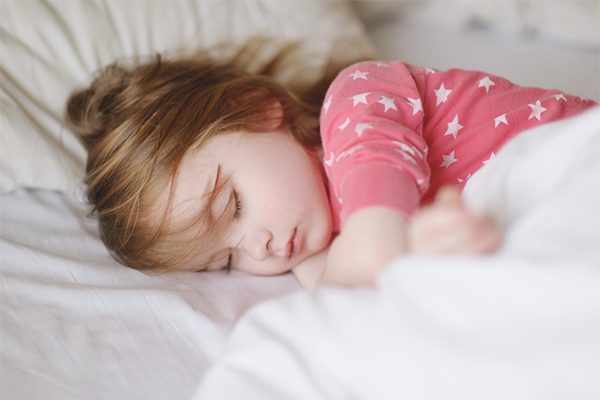


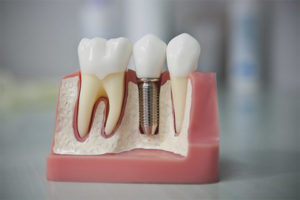

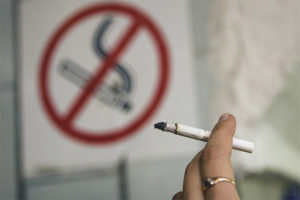

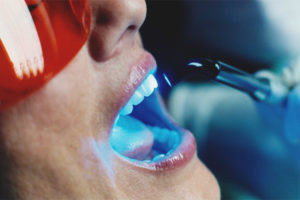
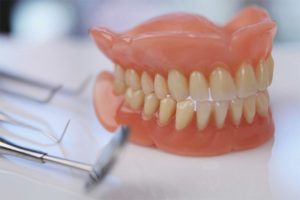

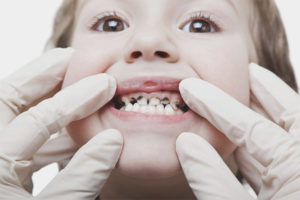
To send